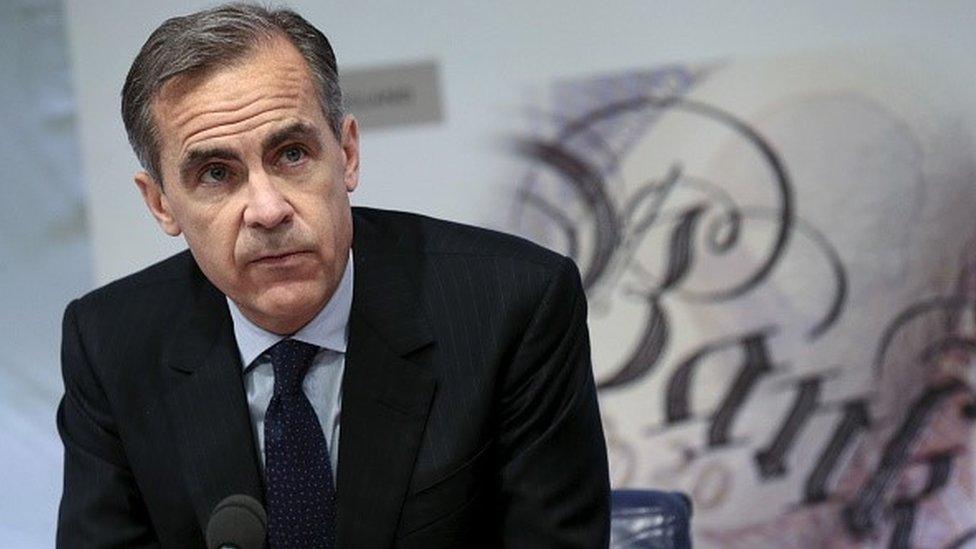Wage growth slows as low inflation bites
- Published
- comments

The Bank of England has said that people's incomes are likely to rise less quickly as global economic turmoil affects the UK economy.
The Bank's Monetary Policy Committee also voted unanimously to keep interest rates at historic lows.
Many now believe that the first interest rate rise will not come until next year and that rates - currently at 0.5% - will not rise above 1% until 2018 or even 2019.
Fears are growing that inflation will remain low until next year.
In its Inflation Report, the Bank said that persistent low inflation, increases in population and therefore labour supply and changes in taxes meant that it was unlikely that incomes would increase at the rate suggested last autumn.
It said that wage growth had "eased significantly more" than anticipated.
It will be 2018 before average weekly earnings are increasing at the rate experienced before the financial crisis, the Inflation report suggested.
So, nearly a decade after the start of the financial crisis, the feel good factor is still pretty muted.
"Wage growth has been weaker than anticipated," the report says.
"Labour costs are expected to rise a little less quickly than thought at the time of the November Inflation Report."
The Bank now expects average weekly earnings to increase by 3% this year, down from the 3.75% it predicted three months ago.
Earnings increases are likely to rise to 4.25% a year by 2018, matching the average increase figure between 1997 and 2007, the report said.
'Softer picture'
The Bank said that although inflation had begun to rise - the December figure was 0.2% - the fall in the price of oil, food and other imported goods meant that it was "likely to remain low in the medium term".
The Bank said that inflation was predicted to be back to the target of 2% in "around two years".
The report also pointed out that economic growth in the UK "has slowed by slightly more than expected".
"Since the November report, global output and trade growth have slowed further and the latest data suggest a softer picture for UK activity in 2015 than previously assumed," the report says.
"The path for Bank Rate implied by market interest rates was lower, and implies that Bank rate remains at its current level until the end of the year before rising to only 1.1% by 2019."
Although that is good news for mortgage holders, savers who have been struggling with ultra-low interest rates for seven years are likely to be disappointed.
"Past falls in oil and other commodity prices have dragged directly on headline inflation rates across many countries," the Bank said.
"Global growth has been muted in recent years, reflecting slowing in emerging market economy growth and below average growth in advanced economies."
The Bank said that growth in the euro-area was "slightly slower" and that US growth was "moderate".
Despite the gloomy global economic news, the Bank said that surveys revealed that consumer confidence about the outlook for the UK economy had improved.
Investment by businesses has also been "significantly faster", the Inflation Report says.